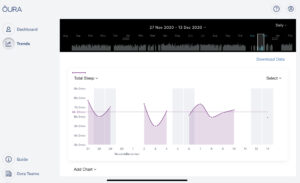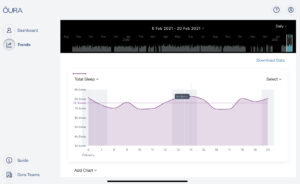Good sleep: ever-important, ever-elusive. About a year ago I posted a series of three blog posts on sleep. In the first I claimed that sleep was as important to life as water, and outlined how poor sleep quality or getting less than 7 hours of sleep (or both) contribute to the development of Alzheimer’s disease and overweight/obesity. My second post was a treasure trove of sleep hacks. If you want to improve your sleep, go back and read that post before you even continue here! Seriously, go read it. Finally, I ended with a post about obstructive sleep apnea, how most people who have it don’t know they have it, and how I came to be diagnosed with it.
Well, in the year since I’ve started faithfully wearing CPAP (I haven’t missed a single night), my sleep still seemed to be a big issue. I would get extremely sleepy early in the evening, and felt like I could easily go to bed at 7pm if it were more socially acceptable. I’d force myself to stay up until 8:30 or 9:00 and fall asleep instantly. I’d sleep soundly for 4 or 5 hours and then awaken around 2 or 3:00 am feeling wide awake, as if it were time to get up for the day. It felt like a surge of adrenaline, with my body warming and my mind alert. I’d then toss and turn the next few hours, trying unsuccessfully to get back to sleep. I decided to take a home lab test from Everlywell called the “sleep and stress test” that looked at my melatonin and cortisol levels throughout the day. It came back showing me that my cortisol was peaking way too early in the morning and dropping early as well. And that’s how I felt at 3:00 in the morning — like my cortisol was rushing in to awaken me for the day.
I did some research and found that there is a circadian rhythm disorder called “advanced sleep wake phase disorder” in which a person whose circadian clock is not quite 24 hours long, say maybe 23.9 hours instead, will gradually start pushing back their sleep time earlier and earlier as time goes by. You eventually become sleep deprived as you wake earlier and earlier, and yet continue to awaken in the wee hours of the morning no matter how tired you are. I decided to try treating myself for this by delaying my circadian clock with three strategies:
1. I started wearing these green-blue LED light glasses for 30-60 minutes when I started feeling sleepy in the evening, to intentionally delay my body’s melatonin production (I now wear them for 30 minutes between 6:45 and 7:15pm). The same effect for a fraction of the cost can be had with exposure to a $20 light box, but I liked the freedom of movement that the glasses afforded me. Go back and read my sleep hacks post for more information about blue light and melatonin!
2. I started taking walks outdoors for a minimum of 30 minutes in the middle of the day (usually during lunchtime) to expose my eyes to natural outdoor light, which even on a cloudy day is exponentially brighter than a flourescently lit office with no windows. Natural daylight or bright light exposure has been shown to lower cortisol levels. While most experts advise you to get bright light exposure first thing in the morning to set your circadian clock and help improve sleep quality, I was trying to delay my circadian rhythm by pushing back that light exposure later in the day.
3. Melatonin supplements. I started taking a physiologic dose, 30 mcg (that’s just 0.3 mg), of melatonin when I awoke around 3am, in a final effort to move my circadian clock later. This is the brand I take — and it’s only about a dollar a month!
The very first week that I started wearing the glasses, I noticed a big change. I was suddenly staying up until 9:30 or 10:00 without any problem and sleeping until closer to 5:00am than 2 or 3. It was a sudden and dramatic change, and one I welcomed. However, I still tossed and turned quite a bit between my 2am wake up and my rising time, and my total hours asleep were still often less than 7.
On February 1, when I decided to choose a no-sugar eating plan because it felt so much better to me, I also spent some time refreshing my knowledge on some of the suggested Alzheimer’s prevention strategies out there. Sleep is thought to be extremely important for people who are trying to avoid or delay cognitive impairment, which of course is one of the reasons why I am so obsessed with improving my own sleep quantity and quality. I decided to start implementing a time restricted eating window suggested by Dr. Dale Bredesen in his bestseller The End of Alzheimer’s in which you fast for 3 hours before bedtime and for 12 hours through the night (or, 14 hours if you happen to be an APOE4 gene carrier like I am). I had been snacking on fruit, a handful of nuts, or a spoon of peanut butter here and there up until 30-60 min before my bedtime until the past few weeks, but now I strictly stop all calorie intake by 6pm at the latest, and then fast until the following morning at 8am (having only a cup of hot herbal tea when I wake in the morning instead of my usual coffee with Nutpods creamer, which contains fat and technically breaks a fast). At the same time, I took a week to taper down my caffeine consumption to zero. I had been having a cup or two of caffeinated coffee around 5:30-6:30am every day and then switching to decaf thereafter, thinking that was adequate to ensure my sleep quality was optimized. But I recently heard sleep expert Dr. Matthew Walker being interviewed by Dr. Peter Attia, and he said that he doesn’t drink caffeine even first thing in the morning because it has been shown to affect both sleep time and quality even 16 hours (!) after consumption. At the same time, I was told by 23andMe and Promethease that I am a “slow caffeine metabolizer” based on my genome, so I am likely to be experiencing the worst of that. So I thought I’d see whether completely eliminating caffeine made a difference for me.
Since I started fasting for 3 hours before bed and avoiding caffeine, I am happy to report a dramatic improvement in my sleep. I am sleeping longer than ever (now often hitting more than 8 hours, which was unheard of for me in recent years) and feeling that my later stages of sleep have less awakenings and more dreams, suggesting my REM sleep has improved. Indeed, my Oura ring data show significant improvement in all aspects of sleep, and my resting heart rate has even dropped to a low of 44 beats per minute over the past 2 weeks. Wow. Over the holidays when I was eating sugar, eating close to bedtime, and drinking caffeine and alcohol, my average sleep per night was 6 hours and 30 minutes:

But over the past 2 weeks, since fasting for 3 hours before bed and avoiding caffeine and alcohol, I’ve averaged 7 hours and 33 minutes (with many days hitting the 8 hour mark):


This is kind of ironic, considering I myself wrote – a year ago – that avoiding eating for several hours before bed and limiting or avoiding caffeine were important. “Physician, heal thyself,” indeed.
It wouldn’t be my blog without an update on my weight, which has happily dropped a couple more pounds since last week:
Project 135 stats:
Starting weight: 159.6 (May 2020)
Week 1: 157.2
Week 2: 155.6
Week 3: 155.4
Week 4: 153.8
Week 5: 151.0
Week 6: 152.8
Week 7: ? (Dad’s death)
Week 8: 150.8
Week 9: 152.6
Week 10: 154.2
Week 11: 152.6
Week 12: 150.8
Week 17: 155.2 (sugar binges)
Week 18: 154.4
Week 19: 153.8
Week 25: 146.6
Week 26: 148.2 (Halloween candy)
Week 27: 146.8
Week 28: 146.6
Week 29: 148.8 (Thanksgiving)
Week 30: 148.4
Week 31: 149.0
Week 32: 152.2
Week 33: 153.0 (Christmas)
Week 37: 153.8 (January 2021: Start intuitive eating experiment)
Week 38.5: 160.8 (on Feb 1, 2021 -> go back to NSNF)
Week 40: 156.4
Week 41: 154.4
Total weight loss: 5.2 pounds (3.3%)
I wonder whether the improved sleep is helping me with weight loss, too.
Sleep well, my friend!
Jen

